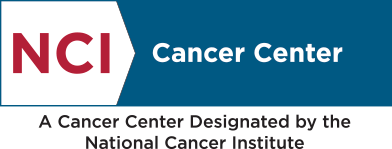Sylvester’s gynecologic oncology high risk clinic provides screening and care planning for those at high risk for gynecologic cancers.
If you are identified as high risk, our multi-disciplinary care team will work with you to create a plan with preventative and therapeutic interventions. Our goal is to decrease your risk of future cancers or to detect cancers early — when they are more likely to be cured.
Personalized care for people at high-risk for gynecologic (GYO) cancer
Based on your needs, your care team provides care from:
- Gynecologic specialists
- Radiation oncologists
- Radiologists
- Pathologists
- Genetic counselors
- Nurse Navigators
- Health Coach
Your Health Coach provides lifestyle modification advice regarding your diet and nutrition, tobacco cessation, weight management and exercise physiology, all of which can help reduce the risk of developing cancer.
Your GYO care team offers expert guidance and services to protect against GYO cancers. Together, we will develop a personalized plan for additional testing, screening, or lifestyle modifications to reduce your risk. We will coordinate genetic testing and high-risk cancer surveillance for you and identify at-risk family members. You will also have access to clinical trials designed to create new methods of preventing GYO cancer.
An experienced, dedicated nurse navigator makes sure all your outside records and test results are received, coordinates appointments, and answers your questions. We make the making the process friendlier and less daunting.
We do all of this to help you make informed choices about your health.
Who is considered at high risk for GYO cancer?
You’re considered to be at high risk if you have:
- A genetic or pathogenic mutation
- A family history of breast, ovarian, uterine, or colon cancers
- Ashkenazi Jewish background
- Morbid obesity
- A history of immunosuppression
- A history of having persistent high-risk HPV infection
If you meet these criteria, your doctor may recommend cancer screenings at a younger age or more frequently (or both).
Let's reduce the risk of GYO cancer together.
There's no sure way to prevent cancer, but adopting healthy lifestyle behaviors can help reduce cancer risk. In the U.S., 40% of all cancers and 45% of cancer deaths are related to modifiable risk factors like smoking, excess body weight, and alcohol consumption, physical inactivity and/or poor nutrition.
Eating healthy is an important part of improving your health and reducing your cancer risk. Focus on a plant- based diet, highlighting vegetables, fruits, whole grains and avoiding red and processed meats, added sugars and alcohol.
For more information on healthy weight, nutrition, exercise and tobacco cessation, visit our Lifestyle Interventions and Cancer Prevention.
Our comprehensive GYO cancer prevention services ensure people at high risk of developing GYO cancer receive screening and support to manage their risks.
The experts at Sylvester specialize in:
Genetic testing and counseling
Genetic testing can tell you if you've inherited a genetic mutation, which significantly increases your risk of developing GYO cancer. Our genetic counselors can help you decide whether testing is right for you. They can also talk to you about your results and your options.
Exercise physiology
According to the American Cancer Society, exercise can help lower your risk of up to 13 different types of cancer, including breast, colon, and endometrial cancer, among others. Regular exercise helps you maintain a healthy weight, regulate hormone levels, boost your immune system, reduce swelling, and more. Our exercise experts can design a program to get you moving.
Acupuncture
If you feel anxious or worried about your elevated cancer risk, acupuncture may let you feel more at ease. Acupuncture is a traditional Chinese medicine approach that applies extremely thin needles to various points (acupoints) in the body. It's been shown to enhance mental and physical well-being, including improving sleep and relieving stress and anxiety.
Nutrition counseling
A nutritious diet can help you reduce your cancer risk. Some foods, such as processed foods and red meats, can raise your cancer risk, while other foods, like whole grains, vegetables, and high-fiber foods, can enhance your health. Our registered dietitians offer personalized guidance to eat better, control your weight, and lower your cancer risk.
Risk-reduction surgery referrals
If you're at high risk of developing GYO cancer, preventive surgery may be recommended. Surgery is a difficult decision; we're here to help you understand all the risks and benefits. We help you understand genetic testing results and offer emotional support every step of the way. We make sure you know all your preventive options so that you can make an informed choice.
Pharmacologic Prevention
This preventive approach uses medicines such as aspirin or non-steroidal anti-inflammatory medications to lower your GYO cancer risk. Your care team will talk to you about the possible side effects and risks of chemoprevention and help you decide if it's right for you.
To schedule an appointment with a health coach specialized in cancer prevention, please call 305-689-RISK (7475).
